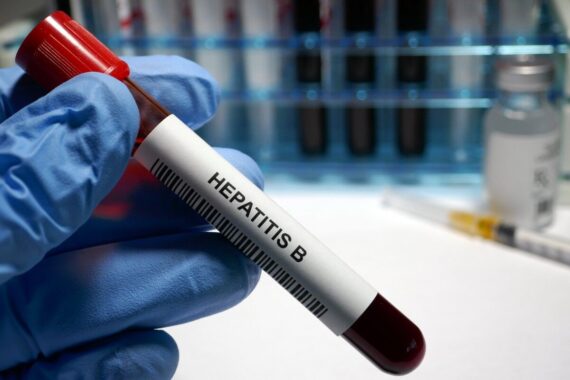The UK Health Security Agency (UKHSA) is looking to increase awareness of hepatitis B among GPs and other healthcare professionals.
In a new report summarising England’s progress towards the World Health Organisation (WHO) elimination target for hepatitis B, UKHSA highlighted that over 50% of people living with the disease remain undiagnosed.
The data, which runs up to 2022, showed that an estimated 95% of new chronic hepatitis B (HBV) infections are in migrants who acquired the infection overseas.
Around 60% of new HBV diagnoses over between 2018 and 2022 were in people residing in the two most deprived Indices and Multiple Deprivation (IMD) quintiles.
One of UKHSA’s goals is to increase awareness of hepatitis B among healthcare professionals ‘by developing and implementing targeted educational resources’ covering transmission routes and the ‘importance of vaccination among high-risk populations’.
The agency pointed to an e-learning course which had been developed by the RCGP ‘to raise awareness in primary care professionals’.
According to UKHSA, more work is also needed to support primary care when managing cases of hepatitis B.
The report said: ‘Local audits have shown that there is variation in primary care management of people with new hepatitis B diagnoses and their close household contacts, with some people not being referred to specialist care and family or household contacts not being offered testing and immunisation.’
It called for interventions which are designed to support primary care in identifying and managing cases, such as risk-based search tools on GP IT systems, ‘to be more widely implemented’.
UKHSA has estimated that just over 268,000 people are living with chronic HBV in England.
The estimated mother to child transmission rate has been ‘consistently’ below the 2% WHO elimination target, having dropped from 0.91% in 2015 to 0.07% in 2022.
Despite ‘successes’ such as this, UKHSA highlighted that there ‘remain significant challenges’, including the ‘large burden of undiagnosed infections’ and ‘falling vaccination rates across multiple groups’.
For gay, bisexual and other men who have sex with men, vaccination coverage has ‘significantly reduced’ between 2008 and 2022.
‘The coverage was as high as 95% in 2008, but coverage of first dose HBV vaccination in non-immune first time attendees (first time attending a sexual health service) in 2019 was estimated to be below 20% (14,645 attendees),’ the report revealed.
UKHSA consultant epidemiologist David Leeman said the challenges facing England include ‘declining take up of the vaccine among vulnerable groups, and a need to increase testing and access to treatment among those at most risk’.
But he highlighted the progress made in England: ‘With transmission of hepatitis B from mother-to-child at incredibly low levels and high uptake of the hepatitis B vaccine in the childhood programme, we are making good progress towards our goal of eliminating hepatitis B as a public health problem by 2030.’
Mr Leeman urged those at higher risk of hepatitis B to access testing via their GP or NHS sexual health clinics.
Pulse October survey
Take our July 2025 survey to potentially win £1.000 worth of tokens














“The report said: ‘Local audits have shown that there is variation in primary care management of people with new hepatitis B diagnoses and their close household contacts, with some people not being referred to specialist care and family or household contacts not being offered testing and immunisation.’ ”
And Dr Leeman tries to blame GPs for this? Does he not even know what is the job of his own department?
It is the role of UKHSA and Public Health, (and NOT GPs) to follow up and trace and offer testing and screening and vaccination to all possible contacts of infected patients reported by GPs and blood sample testing labs.
It is categorically NOT the job of GPs, because we are not allowed to do the contact tracing function, it is not our job, and we are not skilled and expereinced in doing it, so GMC ays we should not try to do it amateurishly, but let the professional tracers (ie UKHSA) do it.
What about an awareness course for UKHSA epidemiologists in what Public Health should be doing?